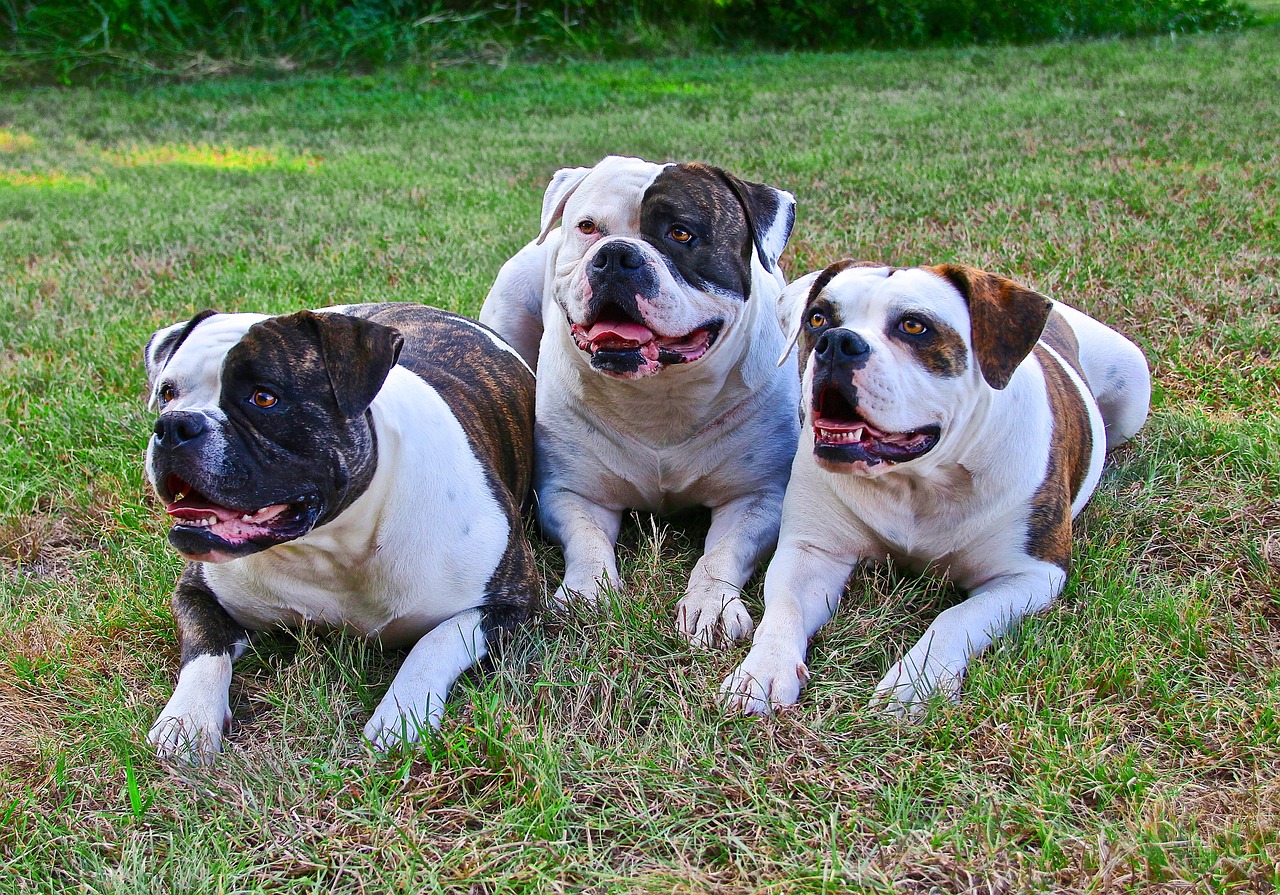When one thinks of Bulldogs, an image of a stocky, muscular dog with a wrinkled face and a tenacious spirit often comes to mind. However, is this iconic appearance indicative of an aggressive temperament? Let’s delve deep into the behavior of Bulldogs, considering the roles that training and environment play in shaping their characters.
Bulldog Temperament: Nature vs. Nurture
The Bulldog, with its historical ties to bull-baiting in England, once had a reputation for being a fierce and relentless dog. However, after bull-baiting was outlawed, breeders worked hard to breed out aggression, aiming to preserve the Bulldog’s physical attributes while refining its temperament. As a result, today’s Bulldogs are more gentle, affectionate, and dependable. Nevertheless, like all dogs, Bulldogs are products of both their genetics and their environment.
The Influence of Training on Bulldog Behavior
Training is a cornerstone in ensuring a well-behaved Bulldog. Positive reinforcement techniques are particularly effective for Bulldogs, who respond well to rewards and praise. An untrained Bulldog might become stubborn or exhibit undesirable behaviors. Therefore, consistent training from an early age is essential to mold a Bulldog into a sociable, obedient pet.
- Socialization: One of the most critical components of Bulldog training is early socialization. Introducing your Bulldog puppy to various situations, environments, people, and other animals can reduce fear-based aggression and territorial behaviors later in life.
- Basic Obedience: Teaching a Bulldog basic commands such as sit, stay, come, and heel can establish boundaries and ensure they respond to various situations appropriately.
Environmental Factors and Bulldog Behavior
Bulldogs, like humans, are influenced by their surroundings. A Bulldog raised in a nurturing, stable environment is likely to develop a friendly and calm demeanor. In contrast, a Bulldog exposed to abusive or neglectful conditions might become more aggressive or fearful.
- Home Setting: Bulldogs thrive in environments where they are treated as part of the family. Regular interaction, playtime, and a safe space to relax are paramount.
- Interactions with Others: Positive encounters with other animals and humans can reinforce a Bulldog’s friendly nature. Conversely, traumatic or threatening experiences might lead to aggressive responses in future situations.
Health Concerns and Bulldog Behavior
Health issues can profoundly impact a Bulldog’s temperament. Bulldogs are prone to specific ailments due to their unique physical structure. Pain, discomfort, or underlying health conditions might manifest as increased irritability or aggression. Regular vet check-ups can help address health issues before they impact behavior.
The Benefits of Adopting a Bulldog from a Rescue or Shelter
Many Bulldogs in rescues or shelters are there through no fault of their own. These dogs often come trained and socialized. While some might have experienced previous traumas, Bulldogs from rescues tend to be resilient and can adapt to new, loving homes with patience and care. Adopting from a rescue not only offers the joy of giving a Bulldog a second chance but can also provide insights into the dog’s temperament and behavior.
Conclusion: Are Bulldogs Aggressive?
While Bulldogs have a historical association with aggressive activities, modern Bulldogs, bred for companionship, have a vastly different temperament. They are generally loving, loyal, and dependable. However, as with all breeds, a Bulldog’s behavior is a combination of genetic predisposition, training, environment, and health. Proper training, a loving environment, and attentive healthcare can ensure that your Bulldog remains a joyous and gentle member of the family.
Frequently Asked Questions About Bulldogs & Aggression
1. Are Bulldogs naturally aggressive?
No, modern Bulldogs are not naturally aggressive. They have been bred for companionship, and their temperament is generally gentle and affectionate. Any aggressive tendencies usually result from environmental factors, lack of training, or health issues.
2. How does early training influence a Bulldog’s behavior?
Early and consistent training can play a pivotal role in shaping a Bulldog’s behavior. Bulldogs who undergo positive reinforcement training from a young age tend to be more obedient, sociable, and less prone to unwanted behaviors.
3. Can a Bulldog’s environment lead to aggressive behavior?
Yes, Bulldogs, like any breed, can develop aggressive tendencies if exposed to negative or abusive environments. Ensuring they are raised in a loving, positive setting will promote good behavior and reduce any aggressive inclinations.
4. Are Bulldogs territorial?
While Bulldogs can be protective of their family and home, they’re not necessarily more territorial than other breeds. Proper socialization can reduce over-protectiveness and territorial behaviors.
5. How do Bulldogs interact with other dogs?
When socialized from a young age, Bulldogs generally get along well with other dogs. However, like all breeds, individual Bulldogs can have unique personalities, and some might be more dominant or reserved around other dogs.
6. Can health issues cause aggression in Bulldogs?
Absolutely. Bulldogs can become irritable or aggressive if they are in pain or experiencing discomfort from health issues. Regular vet check-ups are essential to ensure they are in optimal health.
7. How do Bulldogs react to strangers?
A well-socialized Bulldog will typically be indifferent or friendly to strangers. However, Bulldogs can be wary of unfamiliar people, making early socialization and training crucial.
8. What should I do if my Bulldog shows signs of aggression?
If your Bulldog starts to show aggressive tendencies, it’s essential to consult a professional dog trainer or behaviorist. They can assess the root cause of the behavior and recommend appropriate training or interventions.
9. Is adopting a Bulldog from a rescue or shelter a good idea if I’m concerned about aggression?
Yes, adopting a Bulldog from a rescue or shelter can be a wonderful idea. Many of these Bulldogs have already been trained and socialized. Plus, shelters and rescues can provide insights into a Bulldog’s temperament. Additionally, giving a rescue Bulldog a loving home can often mitigate any past traumas or behaviors.
10. Do Bulldogs require a specific type of training to curb aggression?
While Bulldogs don’t necessarily require specialized training, they do respond best to positive reinforcement methods. Consistency, patience, and early training are key elements in raising a well-behaved Bulldog.

 Toledo, United States.
Toledo, United States.
